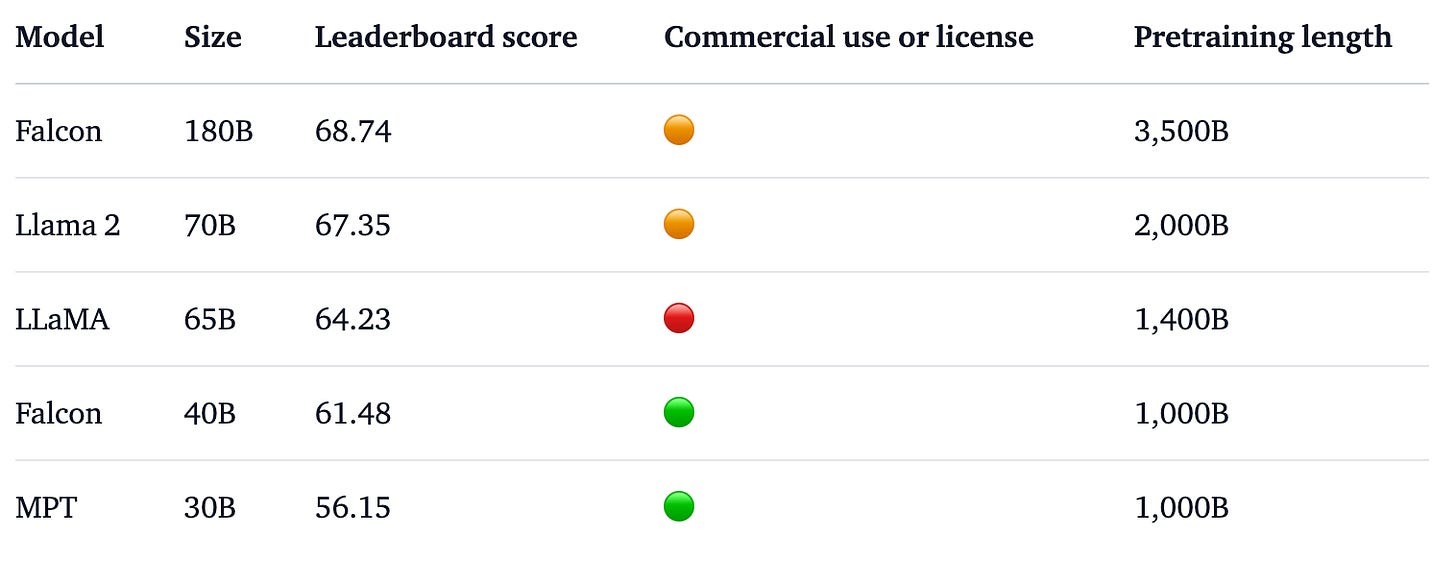Recently in LLM Land
It's time once again for a round of updates from the shores of LLM Land, where things continue to evolve at an unparalleled speed.
Falcon has landed: Open LLM development continues at a breakneck pace. Falcon has just released an open 180B model, which, according to benchmarks, performs on par with Bard and is just behind GPT-4. You can download the model (what a time to be alive…), but good luck running this beast.
Falcon: https://falconllm.tii.ae/index.html
Demo and benchmark: https://huggingface.co/blog/falcon-180b
Hot chips: TPUs, the AI chips developed by Google, are emerging as a highly cost-efficient alternative for both training models and running inference. This is a significant development, especially since the availability of Nvidia's GPUs seemed to be a limiting factor for all large AI deployments.
For more on this:
Serious business: OpenAI has announced ChatGPT Enterprise, which promises enterprise-grade security and privacy. According to OpenAI, you own and control your business data in ChatGPT Enterprise. They do not train on your business data or conversations, and their models don’t learn from your usage. Conversations are encrypted both in transit and at rest. This is particularly noteworthy, especially in light of the news that even the "toy version" of ChatGPT has a $1 billion revenue run rate. Remember the days when these chatbots were considered a passing fad? Good times.
Introducing ChatGPT Enterprise: https://openai.com/blog/introducing-chatgpt-enterprise
Creepy crawlers: In related news, you now have the option to ban the ChatGPT crawler from crawling your website. The question arises: why wouldn't you? ChatGPT ingests your data without giving you credit or linking back to your content. This could potentially be a major issue for OpenAI. My expectation is that the next generation of LLMs will include thorough referencing and links. The legal and economic benefits of doing so are too substantial to ignore.
GPTBot: https://platform.openai.com/docs/gptbot
Data, not code: When OpenAI's Code Interpreter was launched, I commented that the name seemed a bit off-target given its ability to analyze any data, not just code. It should have been named "Data Interpreter" instead. It appears I wasn’t alone in this line of thinking; it's now officially called "Advanced Data Analysis," which is better, but not quite there yet.
CODA
This is a newsletter with two subscription types. You can learn why here.
To stay in touch, here are other ways to find me:
Social: I’m mainly on Mastodon, and occasionally on LinkedIn.
Writing: I write another Substack on digital developments in health, called Digital Epidemiology.






